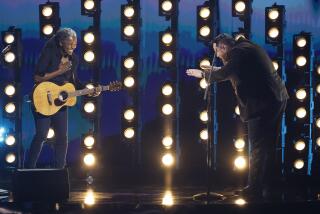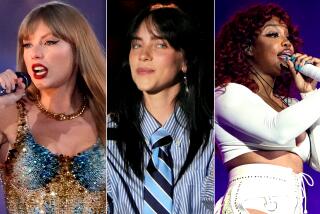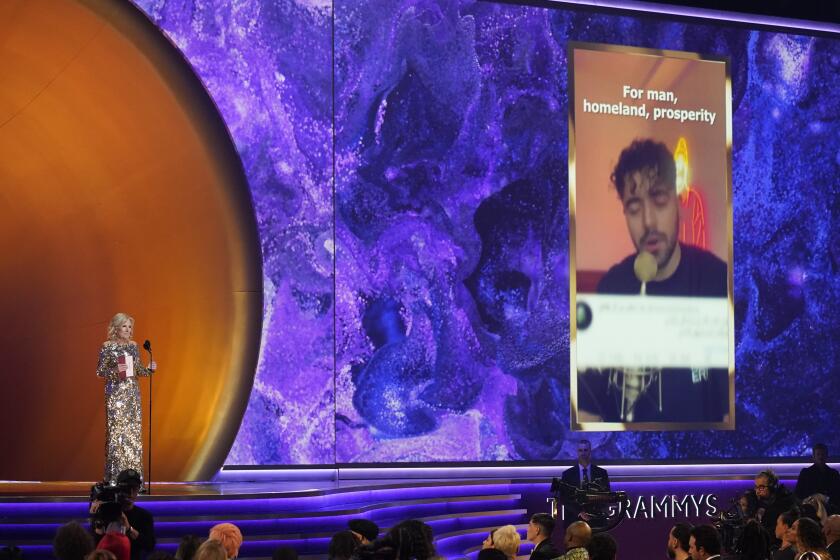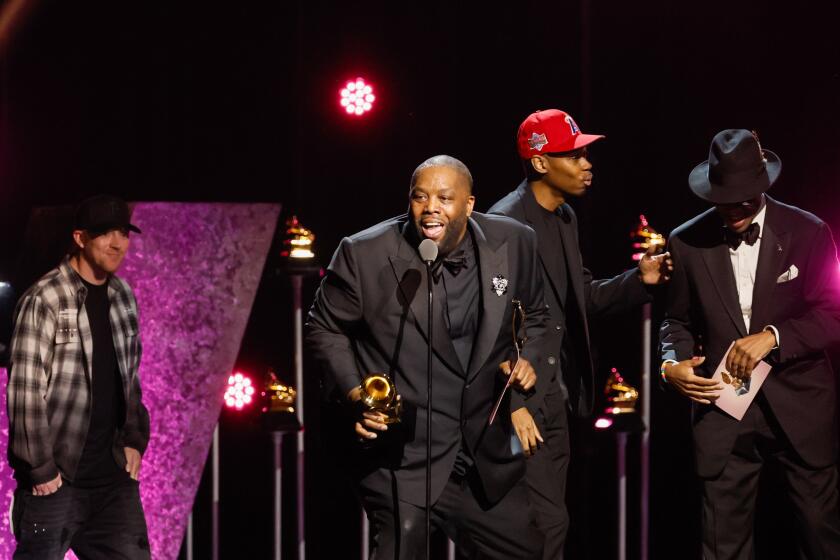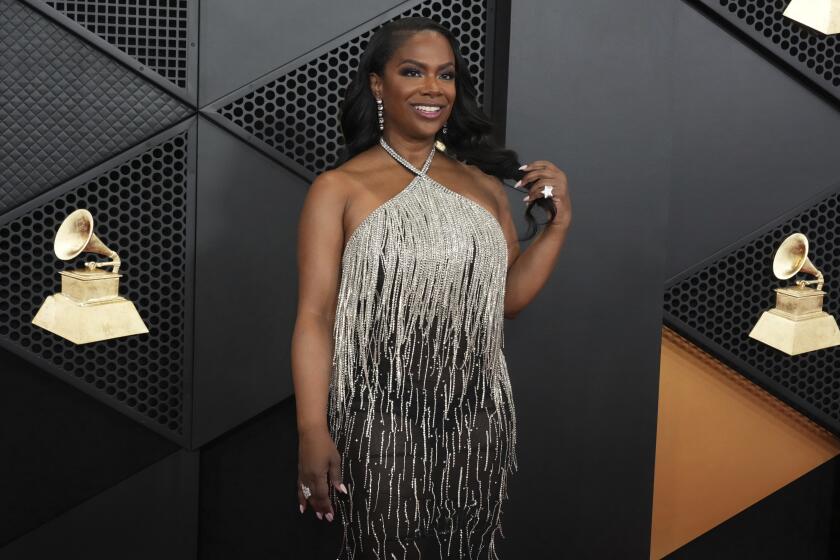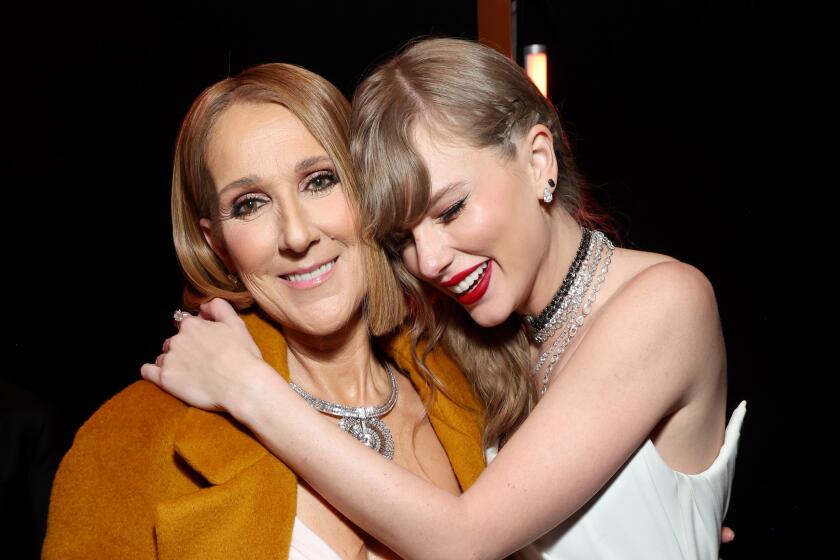Grammy timeline: From Norah Jones to ‘Despacito,’ a look at the Portnow years
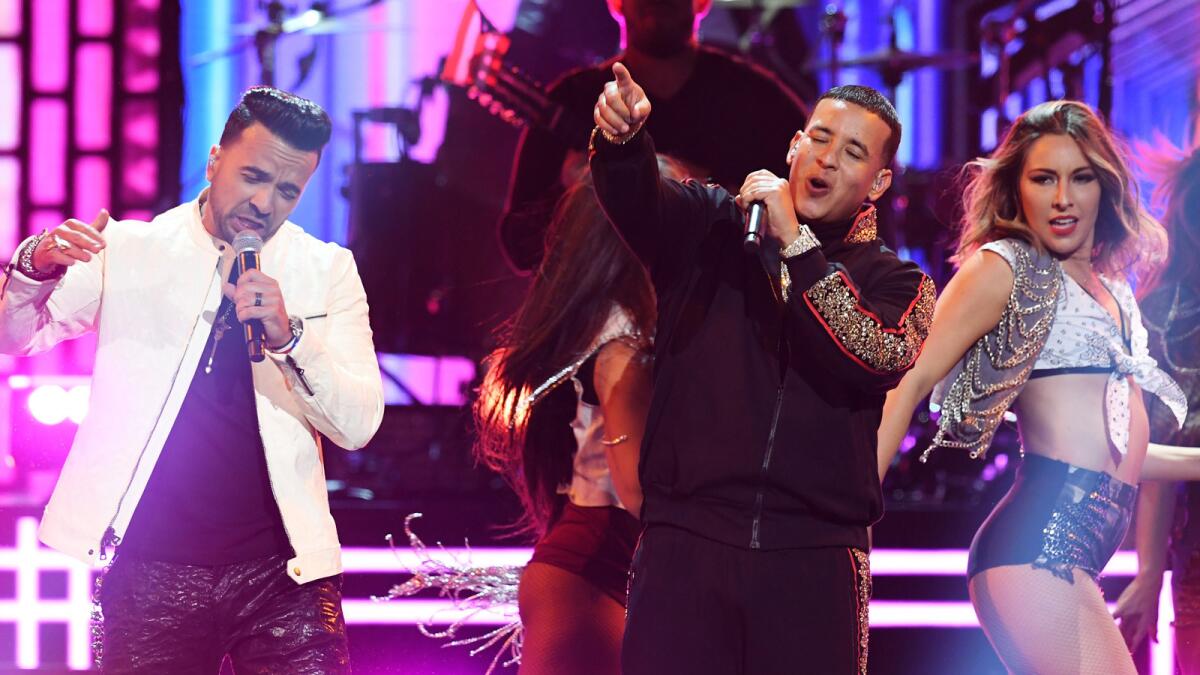
When Neil Portnow was appointed to lead the Recording Academy in 2002, the organization was in crisis mode.
Its former chief, Michael Greene, resigned amid numerous controversies and allegations of sexual misconduct. Over the next decade and a half Portnow would work to restore respect to the institution and expand its mission, along the way transforming the Grammy from an award that was often an after-thought in the alt-rock ‘90s to one coveted by the industry’s top artists.
What follows is a look at the highs, the lows, the oddities and controversies over the past decade and a half of Portnow’s run.
2003 | The Norah Jones surprise
In one of his first interviews with The Times, Portnow says he has inherited many issues when taking on the job: “It was troubling to realize that so many people in our business have never set foot inside the Recording Academy — a building they bought and paid for with their own membership dues.”
That winter a Feb. 23 ceremony, broadcast from New York, broke with tradition by becoming the first Grammys without a single formal host. Instead, according to a Times report at the time, “famous faces associated with New York, such as Sean “P. Diddy” Combs, Willem Dafoe and Ed Bradley, took turns.” Meanwhile, a 23-year-old Norah Jones dominates by capturing the year’s best album, record and new artist, surprising many who expected Bruce Springsteen’s “The Rising” to win big.
2004 | Sorry, Janet Jackson
Janet Jackson, who had been scheduled to participate in a Grammy tribute to Luther Vandross, has her invitation revoked after the previous Sunday’s Super Bowl, when pop star Justin Timberlake pulled at her top to reveal one of her breasts. Jackson declined a CBS invitation to apologize during the awards broadcast, which would have allowed her to perform. For his part, Timberlake performed twice during the ceremony — but wasn’t asked to apologize.
OutKast won album of the year for its “Speakerboxxx/The Love Below,” becoming only the second hip-hop act to take the top prize. Among the artists the act bested were Missy Elliott and Evanescence.
2005 | A little late for Ray Charles
The swan song of the late Ray Charles, an album of duets called “Genius Loves Company,” earned the artist his only trophies for album and record of the year. Charles’ posthumous win, however, was widely panned, as more of-the-moment artists such as Kanye West, who had led nominees with 10 nods, were overlooked in the top field.
Times critic Robert Hilburn sarcastically remarked that the Grammys should add a category — “best album by an artist we should have honored in the album of the year category more than 25 years ago but didn’t.”
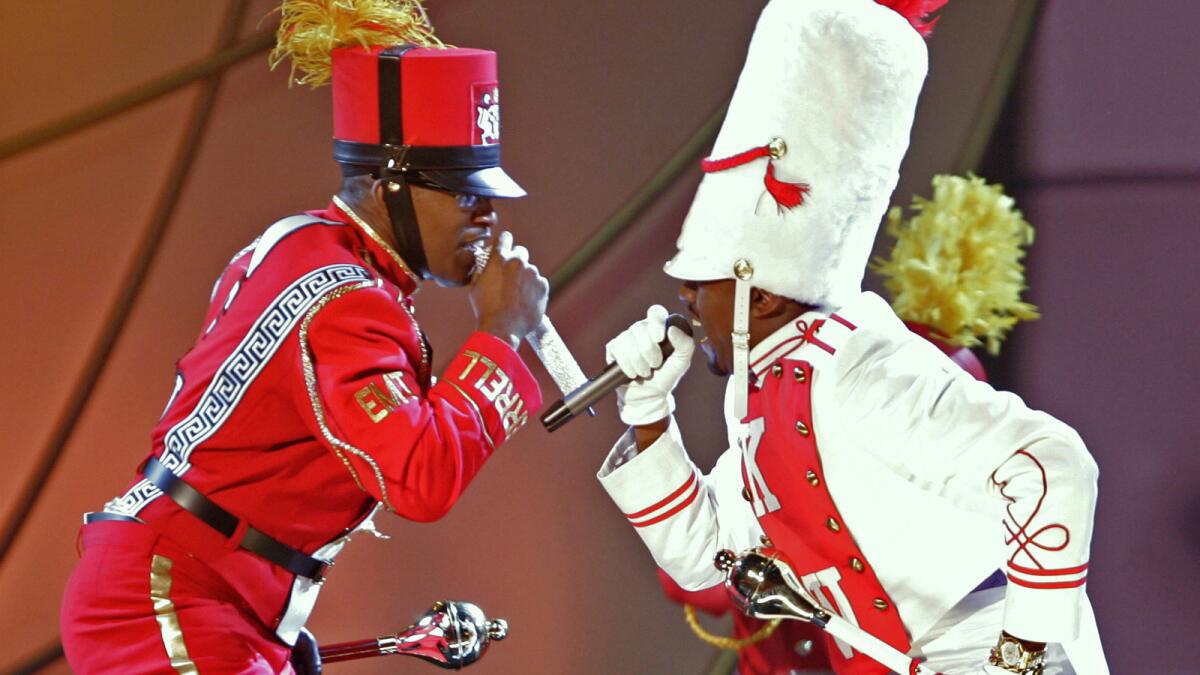
2006 | The Kanye complaint
With declining album sales, the jockeying for a performance slot on the Grammys becomes more intense, and labels start grousing about the cost of appearing on the show, with one anonymous executive telling The Times that his company shelled out $1 million that year for the special effects, stage crews and additional musicians. Portnow said that labels were asked to pay only when performances required special resources, such as full orchestras or expensive pyrotechnics. “The benefits to an artist of a Grammy appearance are priceless,” Portnow said. “Nothing a label pays for the show approaches the value they receive.”
Before a performance of “Gold Digger” on the telecast, West expressed frustration at his perceived lack of respect. “I’ve been here two years in a row, and if I don’t win it’s gonna be a problem,” the then-28-year-old said. West did win for rap album. His protege won an award too: A young John Legend was awarded best new artist. U2, however, won album of the year, telling West that he was “next.” West has still not won the top Grammy prize.
2007 | An ‘Idol’ element
The Grammys start to react to “American Idol.” Coming off a telecast in 2006 when the singing show competition hammered the first hour of the Grammy broadcast in head-to-head ratings, the Recording Academy surrendered to the times and added an “Idol”-like competition to the awards. Fans voted on the Grammy website to pick a young female singer to perform during the broadcast with Timberlake. Portnow put a good face on the concession to “Idol” thinking, saying the celebration of the unknown talent fits the Grammy aspiration to foster music in education and young lives. “Excitement and interest in music and engagement by the public in its discovery is one of our goals and has been,” he said.
The Dixie Chicks, in the news for political comments that singer Natalie Maines made about then-President George W. Bush, take trophies for album, song and record of the year. In accepting one of the awards, Maines acknowledged the controversy by saying, “a lot of people just turned their TVs off right now.”
2008 | ‘Shuttle diplomacy’
The Grammy show was in jeopardy because of a prolonged strike by the Writers Guild of America. Portnow, however, saved the day and was credited with brokering an interim agreement with the Writers Guild of America a little less than two weeks before the show, allowing it to go on unpicketed. “This was shuttle diplomacy at the highest level,” Portnow said at the time. “It’s challenging every year just to get the regular business done. When you add all the elements of having to deal with a totally outside, unexpected issue with very significant magnitude, it certainly took a lot of energy. But I was not going to allow that to in any way rain on our parade, especially in this milestone year.” He added: “I haven’t slept in probably four weeks.”
The show, however, still drew criticism, as Herbie Hancock won album of the year for “River: The Joni Letters” over competition from West and Amy Winehouse. The latter, then 24, dominated the marquee categories, winning best new artist, song and record of the year. She performed her life-imitating-art songs “Rehab” and “You Know I’m No Good” via satellite from England where she had been in drug rehab.
Additionally, in a bid to create more awareness, nominations for the 2009 ceremony were unveiled at a late-2008 concert rather than an early-morning news conference. The one-hour prime-time special featured performances by Celine Dion, Mariah Carey and other stars singing classic songs at the Nokia Theatre.
2009 | The Chris Brown-Rihanna incident
The Grammys were overshadowed by a violent incident. Chris Brown would serve five years’ probation after pleading guilty to a felony count of assault of Rihanna on the eve of the telecast. Rihanna suffered visible injuries and identified Brown as her attacker, according to the police report. The stars’ absence from the ceremony sparked a dramatic last-minute change in the production, for which veteran soul singer Al Green came to the rescue.
Later that year, the 30,000-square-foot $34-million Grammy Museum opens in downtown next to the Staples Center, boasting a 200-seat theater and many interactive exhibits.
2010 | Suddenly Swift
Taylor Swift, at 20, became the youngest person to win the album of the year Grammy, for 2008’s “Fearless.” In a pop-focused, female-centric year, she bested works from Beyoncé and Lady Gaga. Swift today is one of only two female solo artists, along with Adele, to win album of the year twice for solo recordings.
2011 | Arcade who?
Arcade Fire scored one of the biggest upsets in Grammy history in winning album of the year. Arcade Fire did it on an indie label, Merge, and without any smash individual singles. At the time of the win, the other artists in the category — Lady Gaga, Eminem, Katy Perry and Lady Antebellum — had platinum albums under their belts. “The Suburbs” has sold just 486,000 copies.
Later that year, the Grammys slashed 31 categories to 78. No longer would best pop solo performance be divided by the sexes, as best female pop vocal performance and best male pop vocal performance were now a thing of the past.
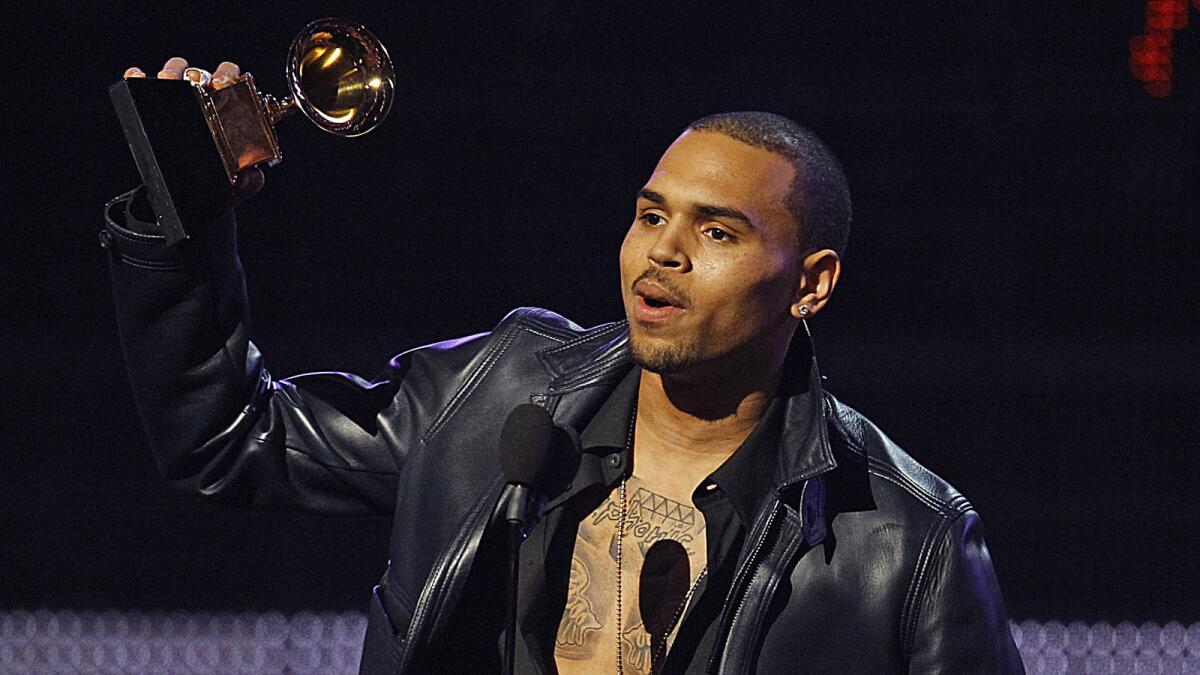
2012 | Whitney Houston
Barely 24 hours before the Grammy telecast, Whitney Houston died in her room at the Beverly Hilton Hotel. With little time to prepare, the academy and the telecast’s producers faced the difficult task of paying tasteful tribute to Houston without draping its annual showcase in gloom. “There is no way around this. We had a death in our family,” LL Cool J, the ceremony’s host, acknowledged in his opening monologue before leading the attendees in a prayer for “our sister Whitney.”
“I’m pretty much the head of the family and when disaster strikes you have to pull it together and make some decisions, creative decisions,” Portnow said.
Controversially, Brown was invited to perform on the Grammys only three years after he pleaded guilty to assaulting Rihanna. “I just believe people deserve a second chance,” the show’s executive producer, Ken Ehrlich, told CBS at the time
2013 | Ocean does ‘Gump’
While Mumford & Sons would win album of the year, today the 2013 Grammys are largely remembered for Frank Ocean’s performance of “Forrest Gump,” which he sang alone onstage behind a keyboard. Ocean would go on in future years to criticize the Grammys, while Ehrlich would offer his own critique of the minimalist performance, describing, on a Rolling Stone podcast, the “rigid” way in which Ocean approached the appearance.
2014 | ‘You got robbed’
Kendrick Lamar is nominated for album of the year with his major-label debut, “good kid, m.A.A.d city” — the first of four nominations the rapper has received for the Grammys’ most prestigious prize. He was snubbed. Additionally, white rapper Macklemore won that year for rap album — and apologized publicly to Lamar.
“You got robbed,” Macklemore wrote on Instagram. “I wanted you to win. You should have,” he wrote. “It’s weird and sucks that I robbed you. I was gonna say that during the speech. Then the music started playing during my speech, and I froze.”
2015 | Healing force
Calling back to his infamous interruption of Taylor Swift at the 2009 MTV Video Music Awards, West leaps onstage to jokingly (or was it?) protest Beck’s winning album of the year over Beyoncé. But it was Beyoncé’s grand finale that was the night’s standout performance, as she offered a solemn yet compelling take on Thomas A. Dorsey’s “Take My Hand, Precious Lord.”
It was music as a healing force — her voice hitting controlled heights as she led into John Legend and Common singing “Glory,” the Oscar-nominated song from “Selma” that connects our country’s racist past and present.
2016 | Racial issues
Less than one month after the death of Glenn Frey, the surviving Eagles gather on the Grammys to pay tribute to their late bandmate with a performance of “Take It Easy” featuring Jackson Browne. Swift would win her second album of the year trophy, once again denying Lamar the top prize.
In a politically tinged show, racial issues were central to two of the telecast’s most powerful performances: the remote broadcast from the Richard Rodgers Theatre in New York, where the cast of the acclaimed hip-hop musical “Hamilton” delivered the opening number live, and Lamar’s powerhouse treatment of two songs from his nominated “To Pimp a Butterfly” album.
During his performance, Lamar made his entrance at the front of a line of dancers and singers, all outfitted in prison blues and shackled in chains on a set built like jail cells. He rapped two songs from the album: “The Blacker the Berry” and “Alright,” explosively pounding one of his rhymes about “the hatred for the world to see” and repeating a refrain of “We gon be alright.”
Additionally, Chance the Rapper’s seven nominations, including for new artist, in part resulted from a rule change that opened the door for music not available in more traditional forms.
His debut album, “Coloring Book,” was issued as a music stream rather than as a physical CD, and would not have been eligible for a Grammy in previous years.
“We never want to be in position where music that deserves to be in the mix is usurped by some technicality in the process,” Recording Academy President Neil Portnow told The Times. “The evaluation and judgment of our voting members is always about the music and excellence, not at all about sales or marketing or technology.”
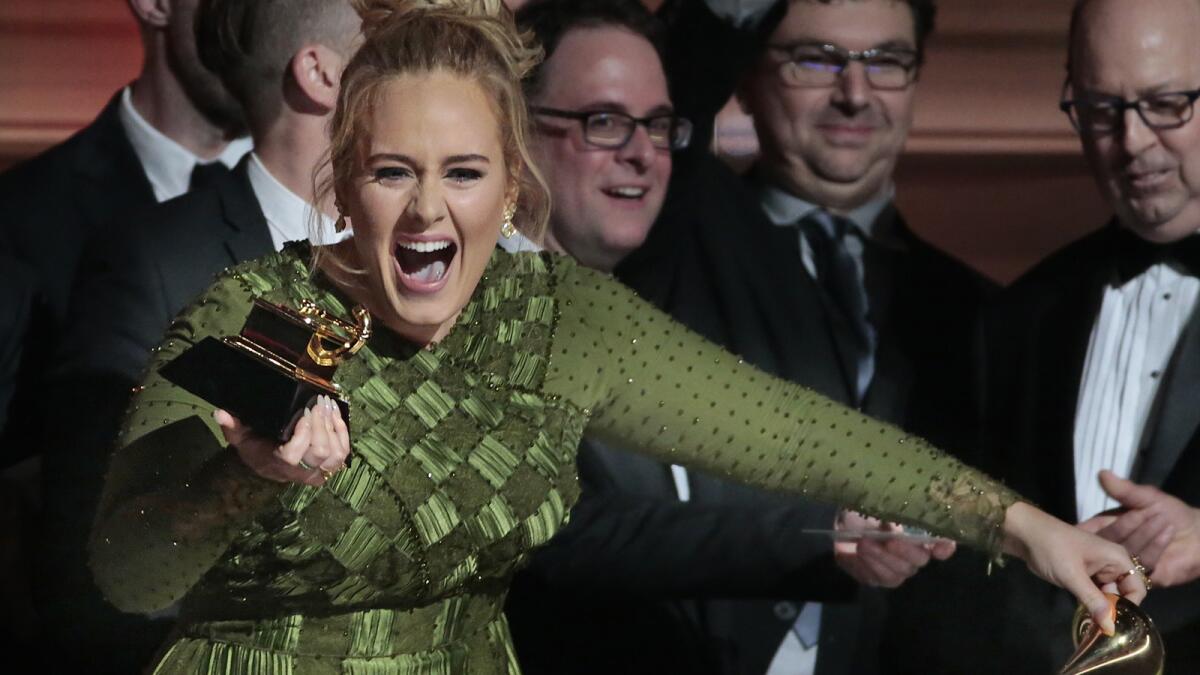
2017 | Adele’s flub
Adele sweeps album, record and song of the year — and calls for a rare televised do-over when she flubs her initial crack at singing George Michael’s “Fastlove.”
Ultimately, Adele, who won three of the music industry’s biggest prizes — album, record and song of the year — seemed overshadowed by the visionary multimedia star she described as her idol.
Accepting the album of the year award for “25,” her blockbuster set of personal, old-fashioned pop ballads, Adele said she couldn’t rightfully take the Grammy knowing that it came at the expense of “Lemonade,” Beyoncé’s album connecting one woman’s marital troubles to the wider cultural struggle faced by women of color.
“You are our light,” Adele told Beyoncé, who looked on with an expression of queenly gratitude.
2018 | ‘Step up’
The music industry was roundly congratulated for providing some diversity among those in the running for pop’s most prestigious honor. Rappers Jay-Z and Kendrick Lamar led, and they were joined in the major categories by Bruno Mars, Childish Gambino and the Puerto Rican duo of Luis Fonsi and Daddy Yankee, who teamed to create 2017’s biggest song, “Despacito.”
But even a casual look at the nominations revealed a woeful shortage of women up for the most coveted Grammys, which include album, record and song of the year. In the album category, only one female artist — the young New Zealand singer and songwriter Lorde — was nominated, for her acclaimed “Melodrama.”
The picture grew even more bleak in light of a USC study that found that men accounted for more than 90% of major Grammy nominees between 2013 and 2018.
Portnow, in his post-Grammy Awards show response to a question about the male-centric results in the top award categories, said the time had come for women to “step up” to receive their due.
That unleashed a firestorm of blowback on social media and elsewhere, with many calling for Portnow to step down. About four months later, the academy announced that he would do just that, but not until his current contract expires at the end of July of this year — almost 18 months after the “step up” remark.
Follow me on Twitter: @toddmartens
More to Read
The biggest entertainment stories
Get our big stories about Hollywood, film, television, music, arts, culture and more right in your inbox as soon as they publish.
You may occasionally receive promotional content from the Los Angeles Times.
